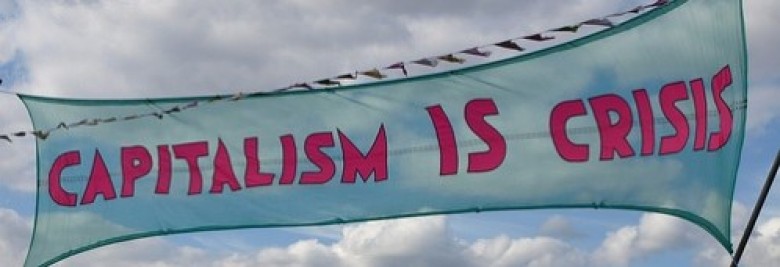THE IDEA OF COMMUNISM
Edited by SLAVOJ ZIZEK AND COSTAS DOUZINAS
Published 7th February, 2011
——————————-
ALAIN BADIOU
JUDITH BALSO
BRUNO BOSTEELS
SUSAN BUCK-MORSS
COSTAS DOUZINAS
TERRY EAGLETON
PETER HALLWARD
MICHAEL HARDT
JEAN-LUC NANCY
ANTONIO NEGRI
JACQUES RANCIERE
ALESSANDRO RUSSO
ALBERTO TOSCANO
GIANNI VATTIMO
SLAVOJ ZIZEK
——————————-
‘The long night of the left is coming to a close’ write Slavoj Zizek and Costas Douzinas in their introduction to The Idea of Communism. The continuing economic crisis which began in 2008, the shift away from a unipolar world defined by American hegemony, and the ecological crisis mean that growing numbers of people are keen to explore an alternative, and to re-discover the idea of communism. This volume, which emerges from the landmark ‘Idea of Communism’ conference in 2009, marks the theoretical beginning of that re-discovery.
Bringing together an all-star cast of radical intellectuals, including Alain Badiou, Slavoj Zizek, Terry Eagleton, Michael Hardt, and Antonio Negri, The Idea of Communism explores the historical, philosophical, and political dimensions of the communist ideal, in order to clarify its meaning and relevance today. The volume brings together their discussions from the landmark conference, highlighting both the idea of communism’s continuing significance and the need to reconfigure the concept within a world marked by havoc and crisis.
The contributors argue that multiple crises of the modern world lay bare the limits of mainstream liberal capitalist ideology. Blending astute analysis with compelling theoretical sophistication, The Idea of Communism complements the themes and arguments in other works in Verso’ ‘Pocket Communism’ series, including Badiou’s The Communist Hypothesis, Boris Groys’ The Communist Postscript, and Bruno Bosteel’s forthcoming The Actuality of Communism.
The collection opens with an exhilarating call to arms by France’s greatest living intellectual, the ‘last man standing’ of ’68. The iconic Badiou examines the link between the communist idea and political practice, highlighting what he calls “the anonymous action of millions of militants, rebels, fighters” who, although “unrepresentable as such”, have throughout history represented, “elements of the Idea of Communism at various stages”.
Capturing the sense of intellectual confidence and excitement in renewing the communist ideal, Slavoj Zizek concludes the collection with a characteristically wide-ranging contribution taking in Lenin, Bill Gates and Samuel Beckett. He addresses the question, ‘how to begin from the beginning?’ and posits an answer by way of identifying new revolutionary subjects which correspond to today’s ‘post-industrial’ capitalism.
——————————-
Praise for SLAVOJ ZIZEK:
“Zizek leaves no social or cultural phenomenon untheorized, and is master of the counterintuitive observation.” New Yorker
“A great provocateur… Zizek writes with passion and an aphoristic energy that is spellbinding.” Los Angeles Times
“The most dangerous philosopher in the West.” New Republic
——————————
SLAVOJ ZIZEK is today’s most controversial public intellectual. His work traverses the fields of philosophy, psychoanalysis, theology, history and political theory, taking in film, popular culture, and literature to provide acute analyses of the complexities of contemporary ideology as well as a serious and sophisticated philosophy. The author of over 30 books, SLAVOJ ZIZEK’S provocative prose has challenged a generation of activists and intellectuals. His latest book is LIVING IN THE END TIMES. He is a professor at the European Graduate School, International Director of the Birkbeck Institute for the Humanities, Birkbeck College, University of London, and a senior researcher at the Institute of Sociology, University of Ljubljana, Slovenia.
COSTAS DOUZINAS is a Professor of Law and Director of the Birkbeck Institute for the Humanities, University of London. He is the author of numerous works, including HUMAN RIGHTS AND EMPIRE, THE END OF HUMAN RIGHTS, and LAW AND THE IMAGE: THE AUTHORITY OF ART AND THE AESTHETICS OF LAW.
——————————–
ISBN -13: 978 1 84467 459 6 / $26.95 / £14.99 / $33.50 / Paperback / 240 pages
ISBN -13: 978 1 84467 455 8 / $95.00 / £55.00 / $118.50 / Hardback / 240 pages
Posted here by Glenn Rikowski
The Flow of Ideas: http://www.flowideas.co.uk
MySpace Profile: http://www.myspace.com/glennrikowski
The Ockress: http://www.theockress.com
Rikowski Point: http://rikowskipoint.blogspot.com
Glenn Rikowski on Facebook at: http://www.facebook.com/glenn.rikowski
Volumizer: http://glennrikowski.blogspot.com



